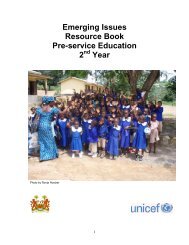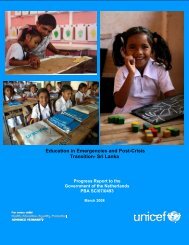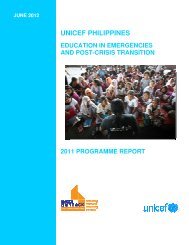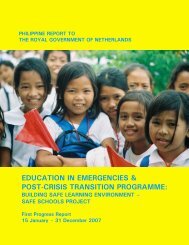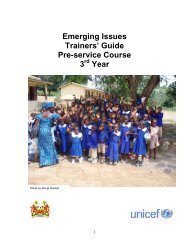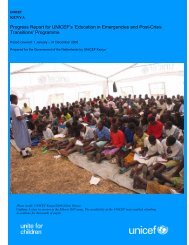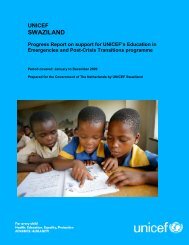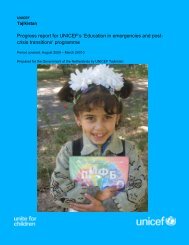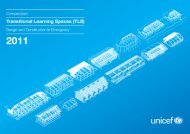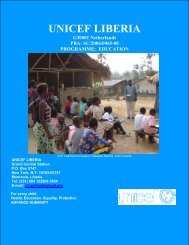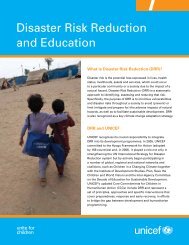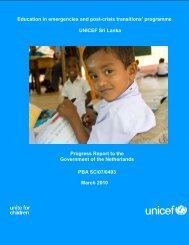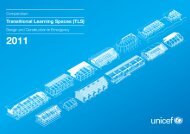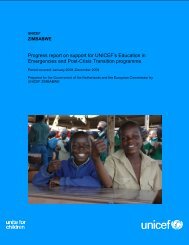Angola Progress Report 2009
Angola Progress Report 2009
Angola Progress Report 2009
Create successful ePaper yourself
Turn your PDF publications into a flip-book with our unique Google optimized e-Paper software.
ECD Database<br />
Issue<br />
<strong>Angola</strong> undertook its last official census in 1970, so the country is lacking reliable, up-to-date<br />
statistical data. This obstructs planning and budgeting, evaluation, monitoring and implementation<br />
of public policies and service delivery for early childhood development.<br />
Action<br />
A new ECD database has been finalized and is available at MINARS. Five MINARS staff were<br />
trained to operate the database in December <strong>2009</strong>, and an additional five staff members are to be<br />
trained in 2010. The data collection system was simplified to accommodate unreliable access to<br />
electricity and Internet at provincial level. Information was sent to provincial MINARS offices to<br />
enable collection of statistical data in municipalities and then consolidated at the central level.<br />
Impact<br />
The ECD database was created to assist in drafting national policies and plans for early<br />
childhood development. It is meant to assist in the elaboration of ECD policies and service<br />
delivery, planning, budgeting, evaluation, monitoring and implementation.<br />
Child-Friendly Schools<br />
Issue<br />
The <strong>Angola</strong>n education system was destroyed during the 27-year civil war and, despite<br />
improvements during the 8 years of peace, significant challenges remain, with a net primary<br />
enrolment ratio of only 66% and a primary completion rate of only 35%.<br />
There are many reasons why children do not enrol and remain in school. The major problem is<br />
the lack of adequate school infrastructure and teaching/learning materials, which leads to chronic<br />
overcrowding of classrooms, and poor water and sanitation facilities. In addition, teachers are<br />
often unqualified and thus cannot deliver high-quality education.<br />
The child-friendly schools framework – Escolas Amigas da Crianca – being developed by MED<br />
with UNICEF support aims to tackle the issues of access and quality in a comprehensive and<br />
holistic manner. UNICEF has advocated extensively over the past years to prioritize the<br />
mainstreaming of the integrated CFS approach as part of the country’s education reform.<br />
Improving teaching and learning outcomes is at<br />
the heart of the CFS approach. It focuses on<br />
teachers, striving to make teaching more<br />
relevant, child-centred and effective. This is<br />
coupled with efforts to build the capacity of<br />
school directors, ensure more community<br />
participation and create safe, protective and<br />
healthy schools in which children can reach<br />
their full potential.<br />
Action<br />
To ensure the relevance of the CFS framework,<br />
broad participation has been encouraged during<br />
its development. This has included a study and<br />
two workshops involving key stakeholders at<br />
different levels to define the characteristics of<br />
the <strong>Angola</strong>n CFS model. Financial support from<br />
the Netherlands assists MED, as the lead CFS<br />
partner, in these activities.<br />
10



